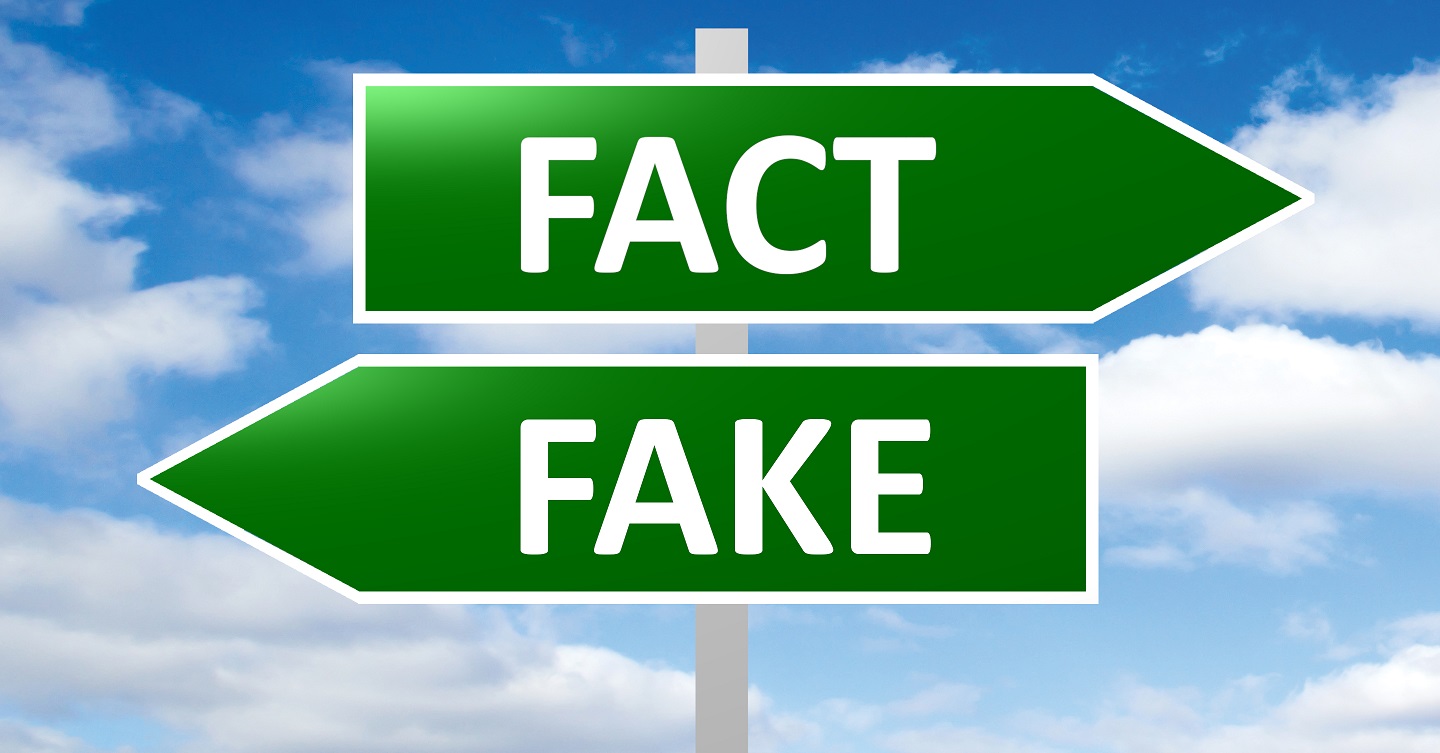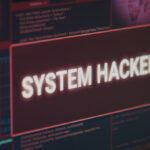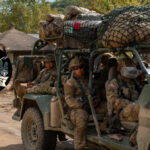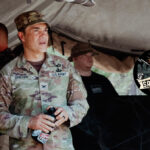
Since its birth, the United States has benefited from the protection of two vast oceans to the east and west. The events of 9/11, of course, brought new attention to the defense of the homeland and recent cyber attacks redefined thoughts of secure borders. A BETTER PEACE welcomes Matt Cavanaugh, Franky Matisek and Bert Tussing to the virtual studio to discuss their part in the Homeland Defense Institute. They join podcast editor Ron Granieri to examine how information is being used to divide and attack the civilian population. They look at examples of cyber attacks and the use of misinformation in Eastern Europe and discuss how Information as a part of DIME has come to the forefront in the cyber age.
You can’t shoot a cannon from a canoe. If you don’t have a firm foundation and a firm base you can’t project power all over the globe.
Podcast: Download
Matt Cavanaugh, PhD, is an active duty Lieutenant Colonel and U.S. Army Strategist with experience in 11 countries and assignments ranging from Iraq to the Pentagon and Korea to New Zealand. He has recently been named a Professor of Practice with the Arizona State University School of Politics & Global Studies, and is a co-founder of and a Senior Fellow with the Modern War Institute at West Point and is a co-founding Member of the Military Writers Guild. His writing has been featured in the New York Times, the Washington Post, the Wall Street Journal, the Los Angeles Times, the Sydney Morning Herald, USA Today, the Chicago Tribune, the Salt Lake Tribune, the Colorado Springs Gazette, and at ForeignPolicy.com. He earned his Master’s in Strategic Studies at Victoria University in Wellington, New Zealand, and his PhD in International Relations under Professors Colin Gray and Beatrice Heuser at the University of Reading (UK).
Jahara ‘Franky’ Matisek is the Senior Fellow at the Homeland Defense Institute and is an active duty U.S. Air Force Lieutenant Colonel and Senior Pilot serving as an Associate Professor in the Department of Military and Strategic Studies at the U.S. Air Force Academy and is the Director of Fellows for the Irregular Warfare Initiative. He has published over 60 articles in peer-reviewed journals and policy relevant outlets on the topic of modern warfare, strategy, and security force assistance. Franky earned his PhD in Political Science at Northwestern University and his forthcoming book, Old and New Battlespaces, describes how sociopolitical-information warfare is leading to the weaponization of everything in society, as every citizen becomes a combatant.
Bert Tussing is Director of the Homeland Defence and Security Issues Group at the U.S. Army War College’s Center for Strategic Leadership (CSL). He joined CSL in October 1999, following nearly 25 years in the United States Marine Corps. He is a distinguished graduate of both the Marine Corps Command and Staff College and the Naval War College and holds master’s degrees in National Security Strategy and Military Strategic Studies. In May of 2014 he was awarded an honorary doctorate in Humane Letters by Northwestern State University in recognition of his work in Homeland Security, Homeland Defense and Educational initiatives surrounding those topics.
Ron Granieri is an Associate Professor of History at the U.S. Army War College and the Editor of A BETTER PEACE.
The views expressed in this presentation are those of the speakers and do not necessarily reflect those of the U.S. Army War College, U.S. Army, U.S. Air Force Academy, U.S. Air Force or Department of Defense.





Excellent podcast! In reference to the question about what kind of information constitutes a threat, perhaps the answer is related to information that amplifies group differences in American society. The U.S. is one of the most heterogeneous societies in the world, and it seems that most information attacks target the fissures between various domestic groups. Any type of information that encourages enmity and exclusivity between groups should be considered threatening information. A more interesting question: what does information defense look like? Censoring will not work as it is against American core values. Perhaps the defense should simply amplify the U.S. virtues that transcend differences: freedom, equality, democracy, and opportunity. This type of thing has historical precedent and only needs to be adapted for modern use. The tools for an effective defense are there, but opinion leaders seem unwilling to use them.
A great deal of this discussion relates to the “weaponizing” of misinformation and/or disinformation by our opponents. But in many cases today, what our opponents are actually “weaponizing” is, in fact, true, correct, proper and accurate information, for example, as relates to:
a. The post-Cold War “revolutionary” efforts of the U.S./the West, to transform the states and societies of the world (to include our own) such that they might be made to better interact with, better provide for and better benefit from such things as capitalism, globalization and the global economy. (Requires various rapid and difficult political, economic, social and/or value “changes.”) And:
b. The the post-Cold War “resistance” efforts of the more-conservative/the more-traditional/the more-no-change elements of the states and societies of the world (to include these such elements in our own states and societies), whose goal is to prevent and/or to reverse such unsettling “revolutionary” changes.
As to this such true, correct, proper and accurate information, note how, in the current issue (Nov-Dec 2021) of Foreign Affairs:
a. Fiona Hill, in her article entitled “The Kremlin’s Strange Victory: How Putin Exploits American Dysfunction and Fuels American Decline” (see beginning at the bottom of column “b” of Page 39), points to how “In the United States, decades of fast-paced social and demographic changes … weakened the country and increased its vulnerability to subversion.” And how:
b. Felicia Wong, in her article entitled “Market Prophets: The Path to a New Economics” (see the middle of column “a” of Page 183), describes today’s “culture wars” as “a go-to euphemism for the backlash against (the effort to achieve) racial and gender equality.” (Item in parenthesis here is mine.)
Bottom Line Thought — Based on the Above:
As in the Old Cold War of yesterday — when it was the Soviets/the communists who sought to achieve rapid and difficult political, economic, social and/or value “change” both at home and abroad (in the name of communism back then) — likewise in the New/Reverse Cold War of today — when it has been the U.S./the West who has sought to achieve rapid and difficult political, economic, social and/or value “change” both at home and abroad (in the name of capitalism, globalization and the global economy today) — the use of misinformation and disinformation, this may not be necessary; this, given the massive availability of true, correct, proper and accurate information — as to:
a. The “revolutionary” goals and efforts of one’s opponent. And:
b. How these such “revolutionary”/”change” efforts threaten those who depend on the status quo for their safety, security, position, status, privilege, etc.
Question: Just how much has Putin invested in the true, correct, proper and accurate information that I describe above?
Answer: Putin has made this the very basis for his “containment” and “roll back” (of the power, influence and control of the U.S./the West) grand strategy:
“In his annual appeal to the Federal Assembly in December 2013, Putin formulated this ‘independent path’ ideology by contrasting Russia’s ‘traditional values’ with the liberal values of the West. He said: ‘We know that there are more and more people in the world who support our position on defending traditional values that have made up the spiritual and moral foundation of civilization in every nation for thousands of years: the values of traditional families, real human life, including religious life, not just material existence but also spirituality, the values of humanism and global diversity.’ He proclaimed that Russia would defend and advance these traditional values in order to ‘prevent movement backward and downward, into chaotic darkness and a return to a primitive state.’
In Putin’s view, the fight over values is not far removed from geopolitical competition. ‘[Liberals] cannot simply dictate anything to anyone just like they have been attempting to do over the recent decades,’ he said in an interview with the Financial Times in 2019. ‘There is also the so-called liberal idea, which has outlived its purpose. Our Western partners have admitted that some elements of the liberal idea, such as multiculturalism, are no longer tenable,’ he added. …
As Putin passes his 20th year as Russia’s president, his domestic and foreign policy appears intended to contrast his country’s ‘independent path’ with the liberal and decadent regimes in the West. The invented (???????) battle of Western values versus Russia’s ‘traditional values’ is part of a Kremlin effort to justify its broader actions in the eyes of Russian citizens, placing them in the context of a global struggle in which Russia is the target of aggression. Ignoring and violating the provisions of international organizations to which it is a party thus becomes a demonstration of defending its conservative values from European liberalism. … ” (Item in parenthesis above is mine.)
(See the Wilson Center publication “Kennan Cable No. 53” and, therein, the article “Russia’s Traditional Values and Domestic Violence,” by Olimpiada Usanova, dated 1 June 2020.)